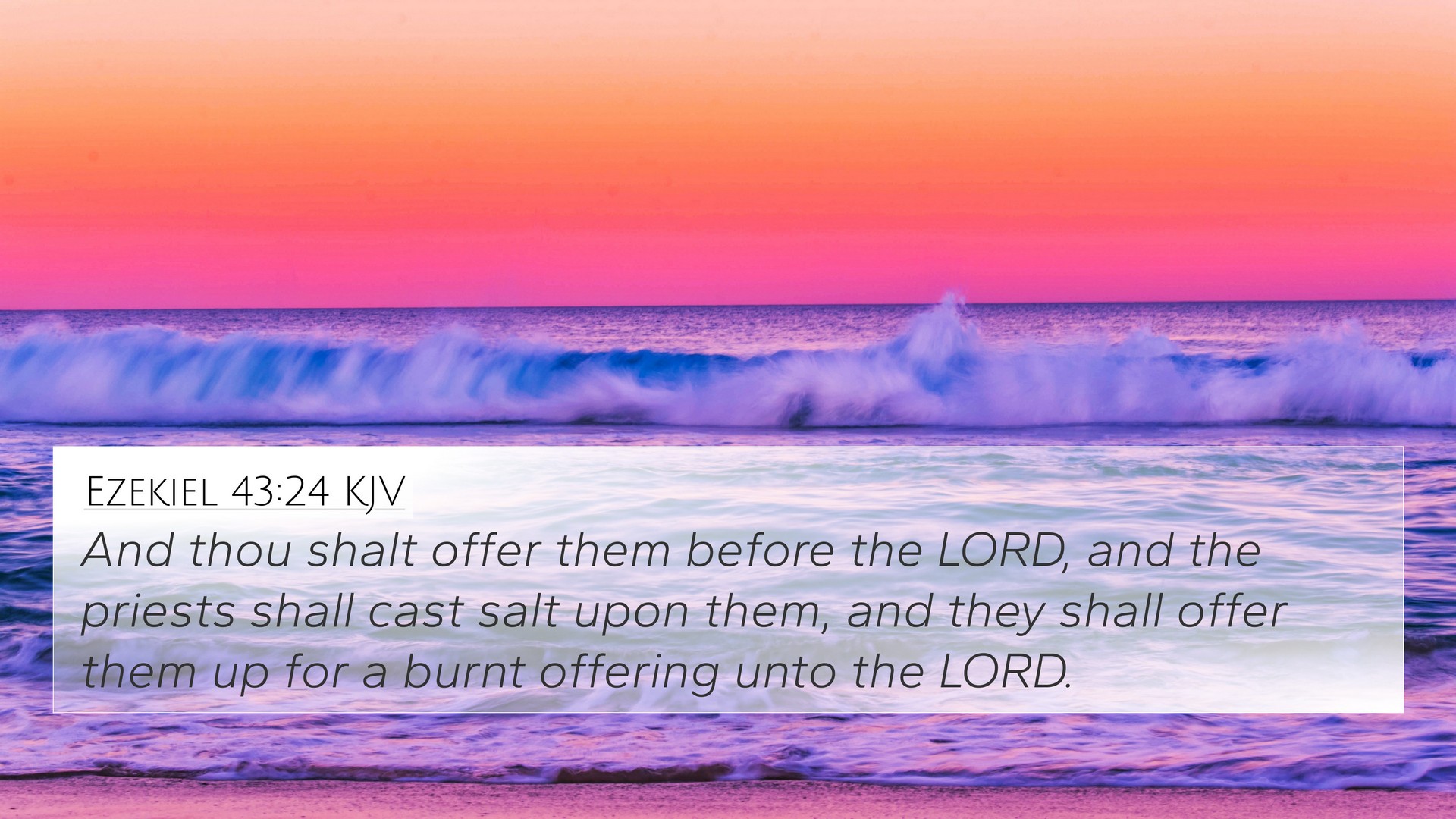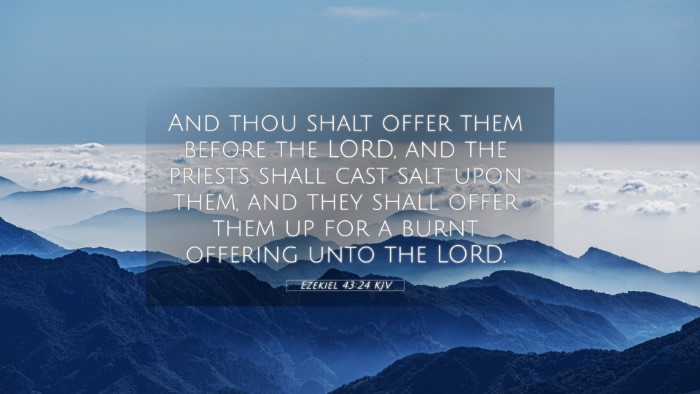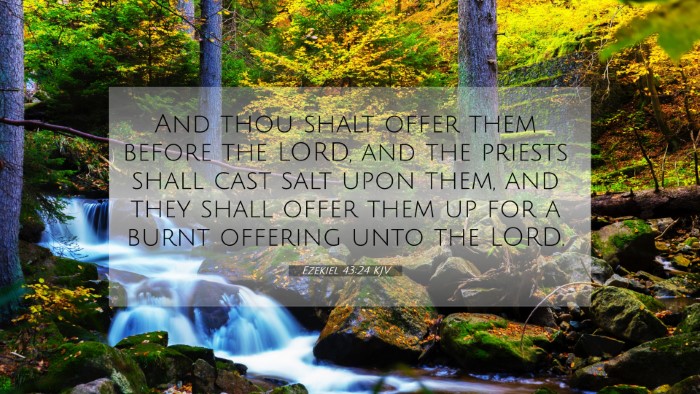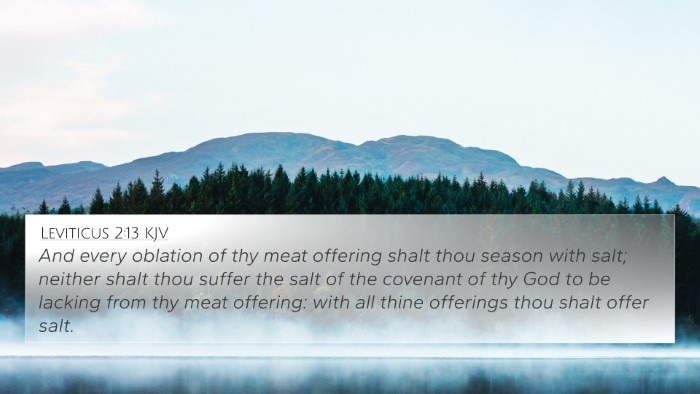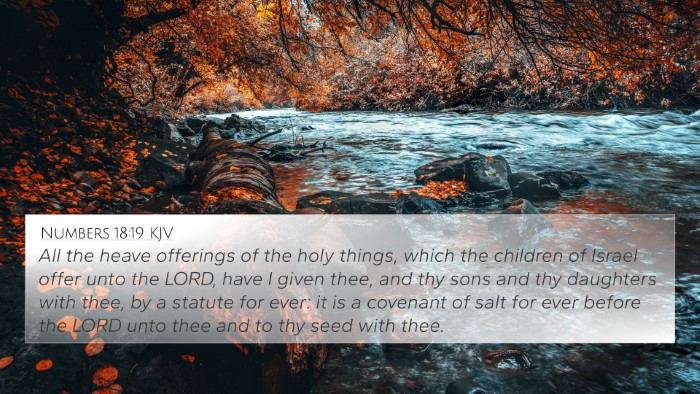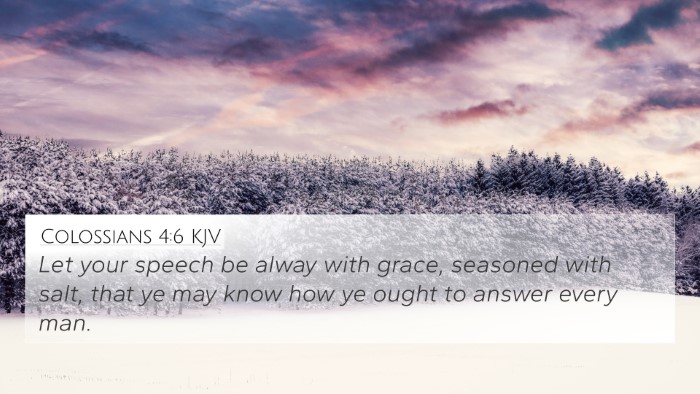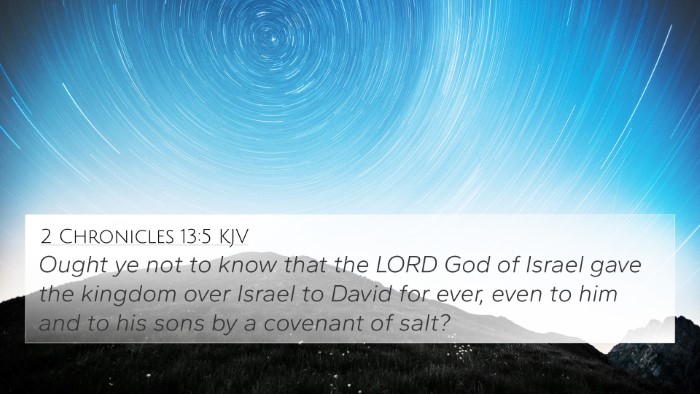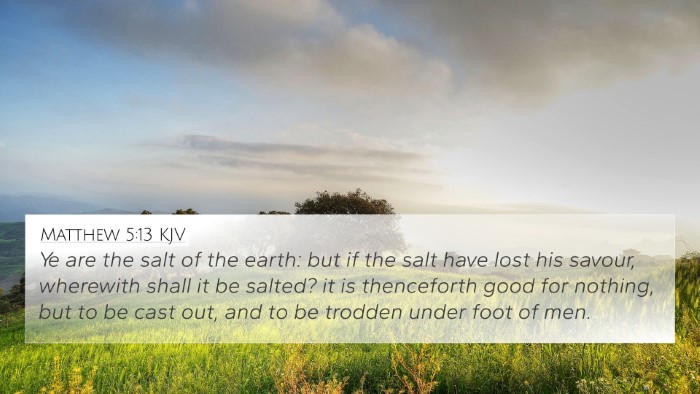Ezekiel 43:24 - Summary and Commentary
Ezekiel 43:24 states:
"And you shall offer them before the Lord, and the priests shall throw salt on them, and they shall offer them up as a burnt offering to the Lord." (Ezekiel 43:24, ESV)
Meaning and Interpretation
This verse is situated within a prophetic vision concerning the future restoration of the temple and the proper worship practices that will be established. The act of offering sacrifices is fundamental to worship in the context of ancient Israel, and this verse sets out specific instructions regarding the burnt offerings, emphasizing their importance in maintaining a right relationship with God.
Key Elements of the Verse
- Offering before the Lord: This phrase signifies the act of dedicating the offerings to God, recognizing His sovereignty and holiness.
- The role of the priests: In this context, the priests serve as mediators between God and the people, tasked with performing the rituals according to divine instructions.
- Salt as a symbol: The inclusion of salt in the offerings highlights its significance in biblical culture, representing purity, preservation, and covenantal value.
- Burnt offering: This was a common form of sacrifice in which the entire offering was consumed by fire, symbolizing complete surrender to God.
Commentaries Insights
The following insights summarize key interpretations of this verse from prominent public domain commentaries:
-
Matthew Henry:
Henry emphasizes the importance of the burnt offerings as a means of atonement and consecration. He considers the act of burning to represent the total devotion of the worshiper to God, signifying all of the offerings belonging to God.
-
Albert Barnes:
Barnes notes that the use of salt in the sacrifices is indicative of the enduring nature of the covenant between God and Israel. He highlights that salt, which preserves food from decay, symbolizes the need for the sacrifices to be pure and to be presented with integrity.
-
Adam Clarke:
Clarke focuses on the priestly function and the necessity for the priests to follow God's commands strictly in presenting offerings. He remarks on the significance of burnt offerings in the context of worship and spiritual renewal for both the individuals and the community.
Cross-References
This verse connects profoundly with several Biblical themes and other verses. Here are some relevant cross-references:
- Leviticus 2:13: "And every offering of your grain offering you shall season with salt." - Discusses the enduring nature of the covenant with God.
- Psalm 51:17: "The sacrifices of God are a broken spirit." - Highlights the importance of sincerity in offering.
- Romans 12:1: "Present your bodies as a living sacrifice, holy and acceptable to God." - Connects to the concept of sacrifice in worship.
- Hebrews 13:15: "Through him then let us continually offer up a sacrifice of praise to God." - Ties into the ongoing practice of offering within the New Testament context.
- 1 Peter 2:5: "You yourselves like living stones are being built up as a spiritual house." - Relates to the concept of believers as a living temple offering sacrifices to God.
- Matthew 5:13: "You are the salt of the earth..." - The teaching link between being a sacrificial offering and maintaining one's faithfulness.
- Exodus 30:35: "And with it you shall make sacred anointing oil." - Connects the sacrificial offerings with the holiness of anointing in biblical practice.
Thematic Connections
The themes of offering, priestly duties, and covenant are prevalent throughout Scripture. Understanding these connections can enhance one’s study of the Bible.
Tools for Bible Cross-Referencing
For those wishing to delve deeper into cross-referencing Bible verses, various tools can aid you:
- Bible Concordance: A systematic listing of words wherever they appear in Scripture, aiding in deeper study.
- Bible Cross-Reference Guide: Offers connections and thematic studies across different books of the Bible.
- Cross-Reference Bible Study: A technique for exploring the relationships between different scriptural passages to gain insights.
- Bible Reference Resources: Tools and books that provide detailed studies on how verses relate to one another.
- Bible Chain References: A linked list of verses that allows for continuous study along a theme.
Conclusion
Ezekiel 43:24 is a rich source of theological insight that underscores the foundational practices of faith in ancient Israel and how they transfer to our understanding of worship and offering today.
As you study this verse, consider the broader implications of covenant, sacrifice, and worship in the context of both the Old and New Testaments.
